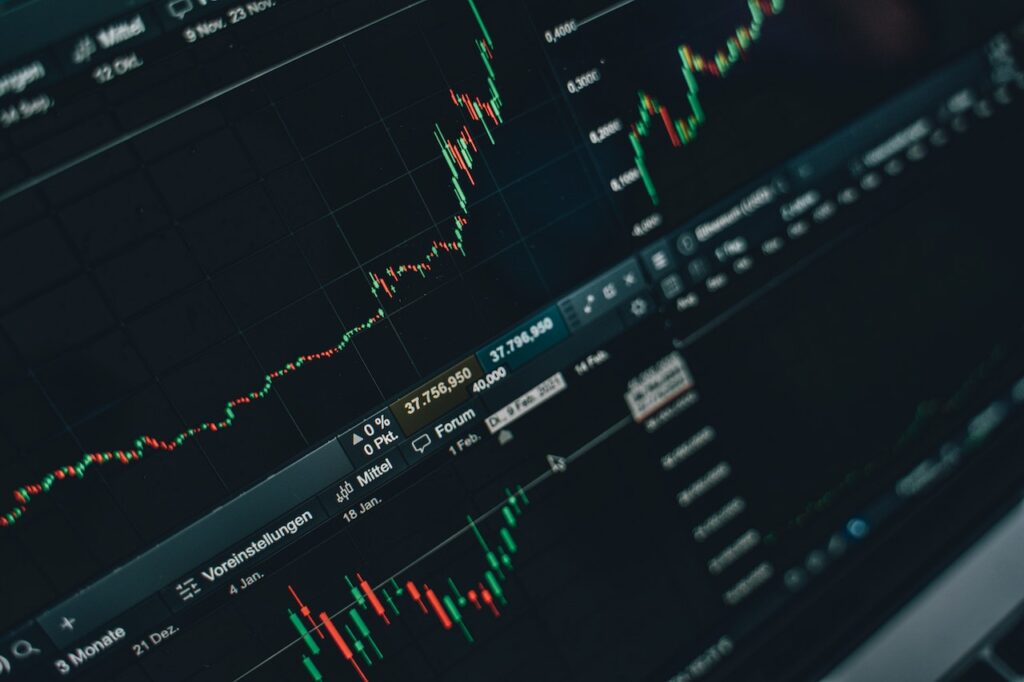CFD trading is not at all new trading format in Nigeria. Over the years, a lot of Nigerians have been introduced to this trading format, and it has thus gained wide acceptance. As a result, a lot of international CFD brokers are launching their services in Nigeria, thereby giving traders local access to the market.
In this post, I intend to explore the good and bad of investing in CFD, and thus help you be better informed before taking the plunge. But before we go into that, let’s take a brief look at what CFDs is.
What is CFD Trading and How Does it Work?
To begin with, CFD stands for “Contract for Difference” – thus, the concept of CFD trading means trading contract for differences. This is when traders are allowed to trade price movement of assets without owning the said assets. The underlying asset can be shares, cryptocurrencies or fiat currency pairs, commodity or index.
Traders and investors speculate on the price movement of their desired asset and then open a financial contract with a broker or online provider to exchange the difference in price between the opening and closing of the contract with regards to the asset being traded.
The mechanism behind this form of trading is really simple. Suppose the value of the underlined asset rises (go long) as predicted by the trader, the trader profits. Similarly, if the value of the underlined asset drops (go short) as predicted by the trader, the trader profits still. If on the other hand, the predictions of the trader end up wrong, it results in a loss for the trader.
For all intents and purposes, trading CFDs feels just like traditional trading. The only difference is that you don’t own (buy and sell) the underlying asset. This way, you avoid some of the risks and costs of traditional trading.
Pros and Cons of Trading CFDs
Like any form of investment, even though trading CFDs is highly profitable, it also comes with its own share of risks. Let us take a look at some of the pros and Cons of trading CFDs in Nigeria.
Pros:
- Trading with leverage
- CFDs are transparent
- No stamp duty
- CFDs do not expire
Let us take more detailed into the pros of trading CFDs.
Trading with leverage
With CFD trading, you get to trade with high leverage. This means that a smaller amount of capital allows you to control a much larger position. You can easily apply leverage by depositing on a small fraction of the trade’s total value. This obviously makes it possible to open larger trades even on a small budget.
This is unlike stocks where you may require insane investment capital to profit much from a trade. Leverage makes speculating on small price changes easier. This also means that a small price increase earns you more money. How interesting can investing get?
CFDs are transparent
Trading or investing with CFDs is fairly easy; the average trader or investor can understand the prices. Typically, the price of a CBD tends to equal that of the underlying security. For instance, when apple share increases, the CFD will also increase in value fairly accurately.
This simplicity and transparency makes trading CFD really attractive. CFDs generally offer additional, but necessary functionalities that make for a seamless trading experience. CFDs allow you to easily place orders, and in so doing, you can open or close investments automatically at a certain price.
No stamp duty
CFD trading or investing does no incur any form of stamp duty. Bear in mind that as derivative instruments, this form of trading does not taking ownership of the underlying asset, but rather track the market.
For instance, when you purchase CFDs on Apple shares, you are not directly investing in the company or owning its shares. All you do is just speculate on the fluctuations of price. As such, you don’t have any business with paying stamp duties.
CFDs do not expire
CFD trading eliminates the frustration associated with traditional forms of trading such as futures or options. Imagine drawing close to your strike price where your profits are to set in, and suddenly the contract expires. How frustrating, right?
CFD trading gives you more flexibility and control over the duration of your contract. You can continue holding your position for as long as you want and sell when you are ready without any worry or fear of losing out on any extrinsic value. There is no expiry date attached to trading CFDs.
Cons
- Negative leverage
- Incur financing cost
Let us take a more detailed into the cons of trading CFDs in Nigeria.
Negative leverage
Leveraging is somewhat a double edged sword in CFD trading. As much as it has its benefits, there are also risks that come with it. A leveraged trade is aimed at improving gains, but inexperienced and new traders always make the mistake of going overboard and risking too much on a specific position. They do this with the hope of making a lot of profits overnight; most often than not, this result in a negative outcome.
Financing cost
It is only natural that CFD trading incurs financing cost; after all, the largest proportion of the investment is handled by the broker, thanks to leveraging. This is to say that leveraging comes at a cost. However, the amount of financing cost you pay on your leverage varies and depends on broker and investment product. Ultimately, CFD investments are not suitable long-term. It is recommended to trade CFDs within a time frame of less than a year.
Conclusion
Thanks to CFD trading, investors can trade with small amounts in currencies and shares, and can be very profitable, when done with expertise. In the same vein, traders with no expertise can lose the entire asset units and end up with nothing.
It is important that any trader considering CFDs should have an understanding on how this form of trading work, the risks involved before taking the plunge.








Facebook Comments